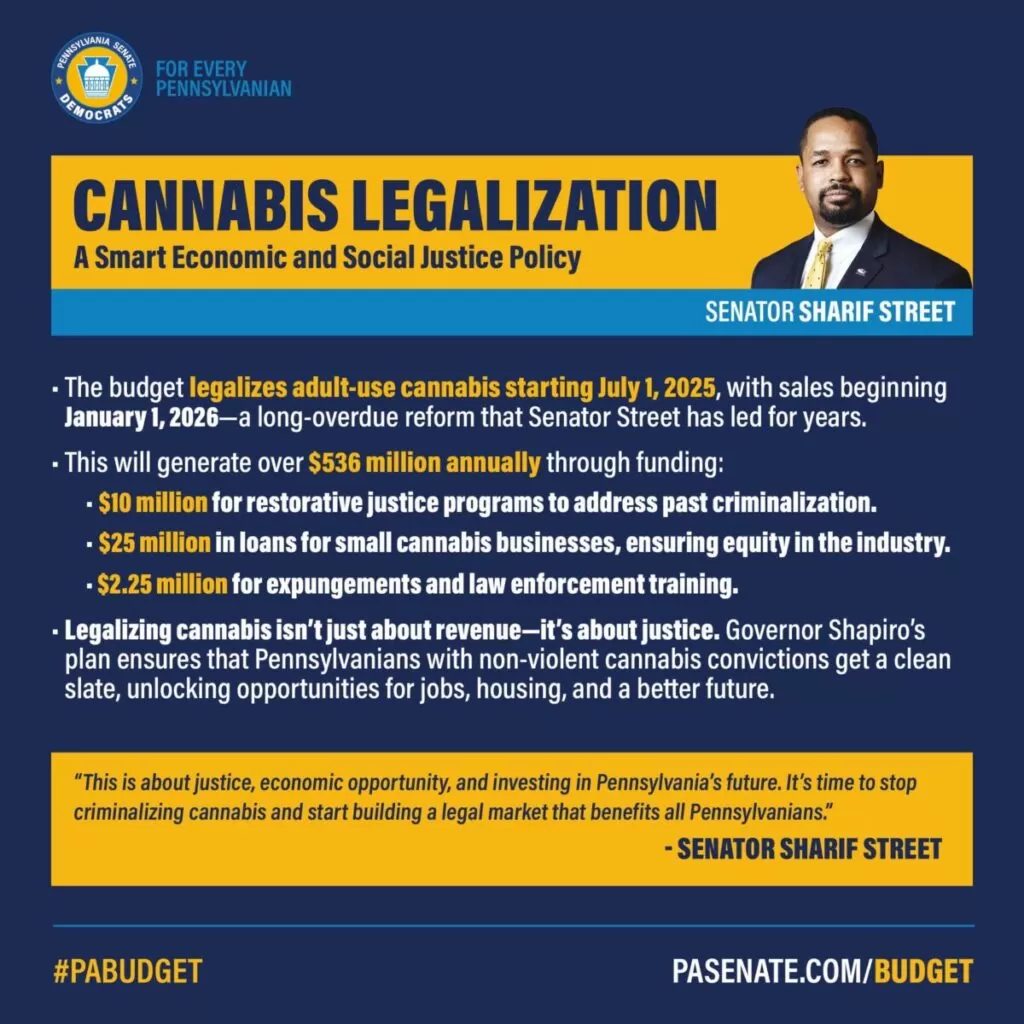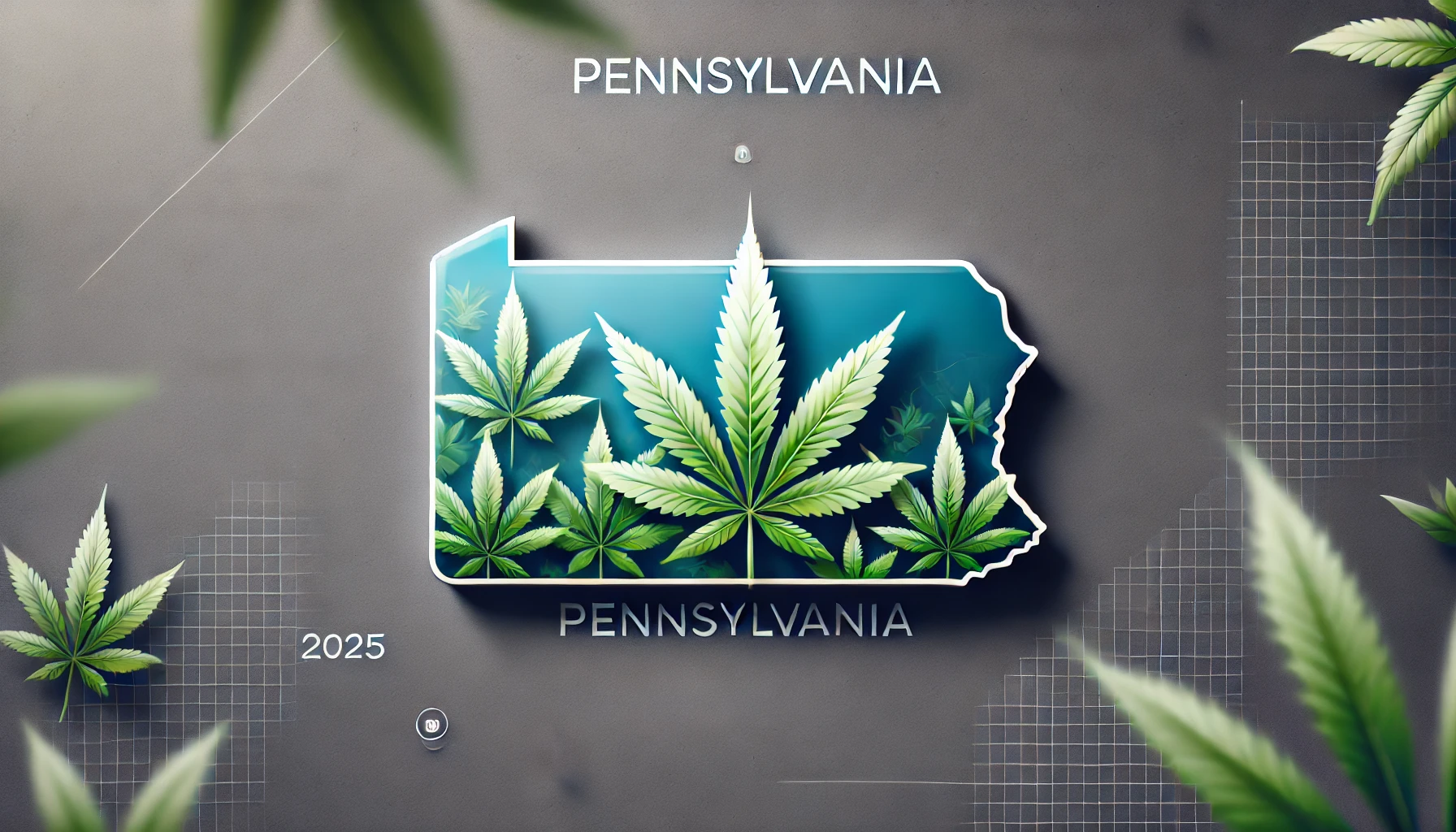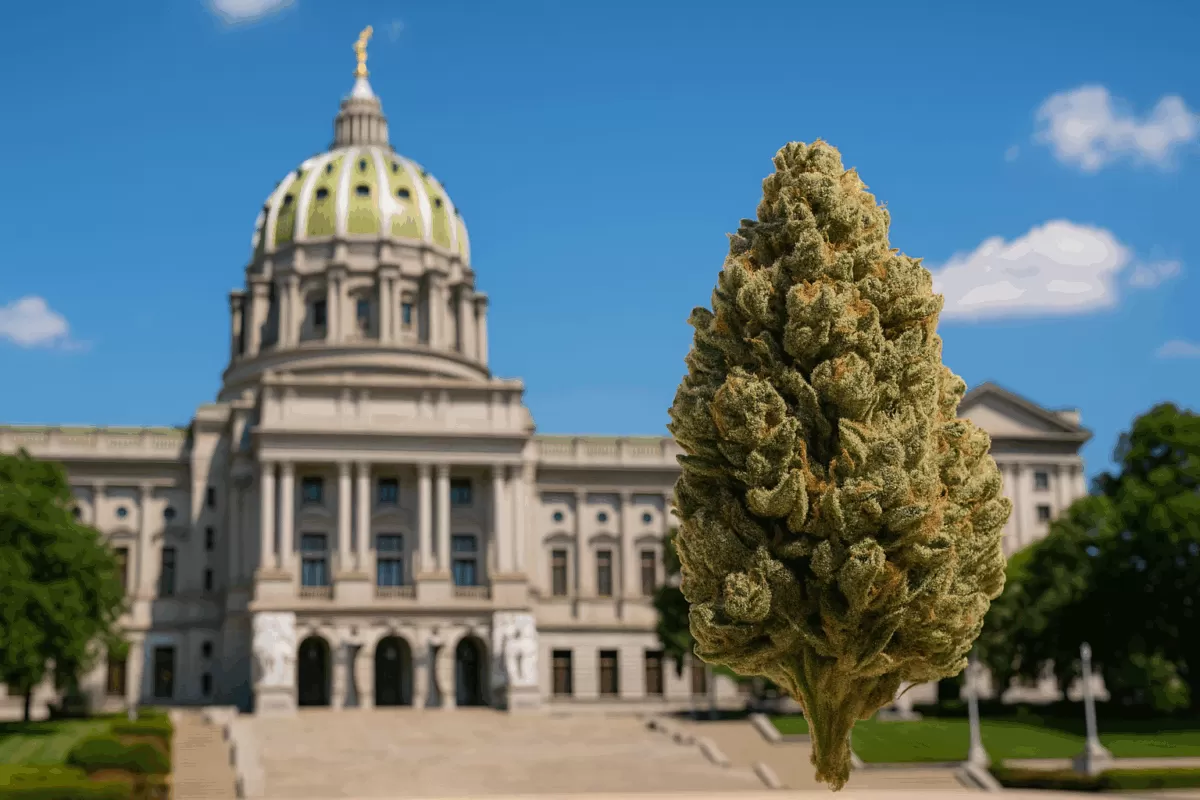Pennsylvania could soon be the next state to legalize adult-use cannabis, thanks to a bold proposal from Governor Josh Shapiro. During his recent budget address, Shapiro called for legalizing recreational marijuana starting July 1, 2025, with sales projected to begin on January 1, 2026. This proposal isn’t just about creating a new revenue stream; it’s a step toward economic growth, restorative justice, and social equity.
The Economic Impact of Pennsylvania Cannabis Legalization
Governor Shapiro projects that legalizing and taxing cannabis could generate a staggering $1.3 billion in revenue over the first five years. Once the market is fully operational, Pennsylvania expects to bring in over $536 million annually, creating new jobs and boosting local economies across the state.
This revenue will be strategically allocated to support key initiatives:
- $10 million for restorative justice programs to address the long-term harm caused by cannabis-related criminalization.
- $25 million in loans for small and diverse cannabis businesses, ensuring equity and access in the industry.
- $2.25 million dedicated to expungement efforts and law enforcement training to promote fairness within the justice system.
Shapiro emphasized, “Letting this business operate in the shadows doesn’t make sense. By doing nothing, we’re making Pennsylvania less competitive.”
A Focus on Justice and Equity
Beyond economic benefits, the proposal prioritizes justice. Governor Shapiro’s plan includes legislation to expunge non-violent cannabis convictions, giving thousands of Pennsylvanians a clean slate. This would open doors to better employment, housing, and educational opportunities, helping individuals rebuild their lives free from the barriers of past convictions.
“This is about justice, economic opportunity, and investing in Pennsylvania’s future,” said Senator Sharif Street, a long-time advocate for cannabis reform. “It’s time to stop criminalizing cannabis and start building a legal market that benefits all Pennsylvanians.”

Pennsylvania’s Cannabis Journey
Pennsylvania legalized medical marijuana in 2016, allowing patients with conditions like anxiety, epilepsy, Tourette syndrome, and Parkinson’s disease to access cannabis for treatment. Despite this progress, recreational cannabis remained illegal—until now.
Efforts to legalize adult-use cannabis have gained momentum over the years. Lawmakers like Rep. Rick Krajewski have been vocal in their support, stating, “We’ve heard from public health experts, criminal justice advocates, and equity leaders. It’s time to move forward before Pennsylvania falls further behind.”
The National Cannabis Landscape
Pennsylvania’s push for legalization aligns with a broader national trend. Currently, 24 states, along with Washington D.C., Guam, and the Northern Mariana Islands, have legalized recreational cannabis. In contrast, 47 states allow medical marijuana in some form. Only Idaho, Kansas, and Nebraska maintain complete prohibitions on cannabis.
Legal cannabis has proven to be a significant revenue generator nationwide. According to the Marijuana Policy Project, states have collected over $20 billion in tax revenue from legal cannabis sales since 2012. Public support for legalization is at an all-time high. A March 2024 Pew Research Poll found that 88% of U.S. adults believe cannabis should be legal in some form, with more than half supporting legalization for both medical and recreational use.
What’s Next for Pennsylvania?
As Pennsylvania moves closer to legalizing adult-use cannabis, the focus remains clear: economic growth, restorative justice, and equitable opportunities for all residents. If passed, this legislation will not only position Pennsylvania as a leader in cannabis reform but also create a model for how states can balance revenue generation with social justice.
The countdown to July 1, 2025, has officially begun.












